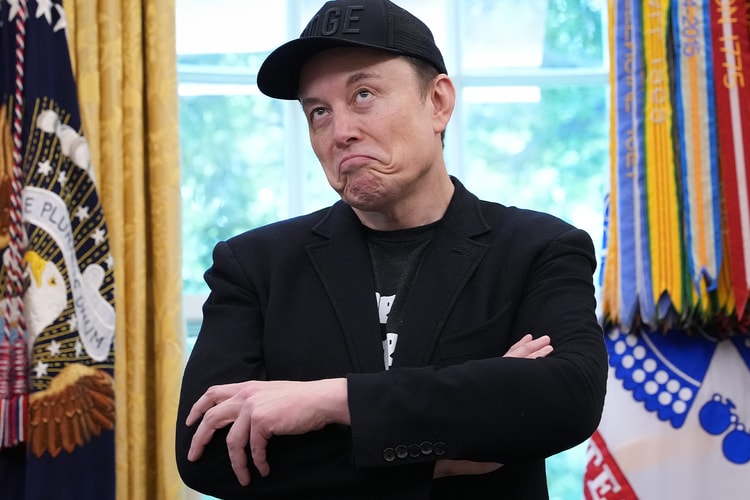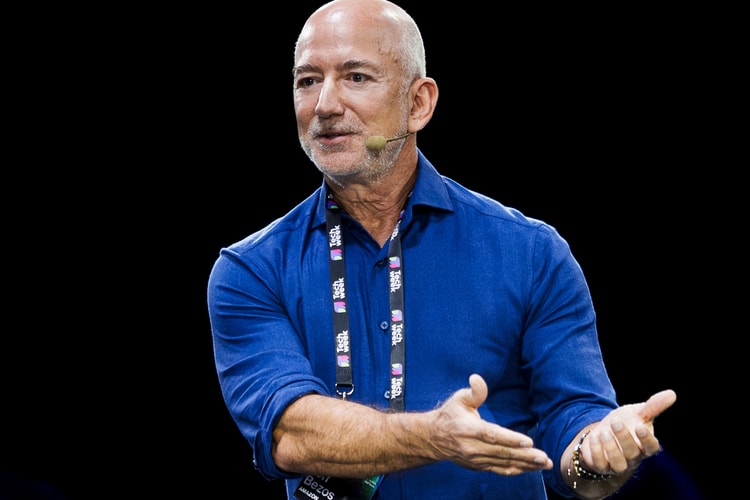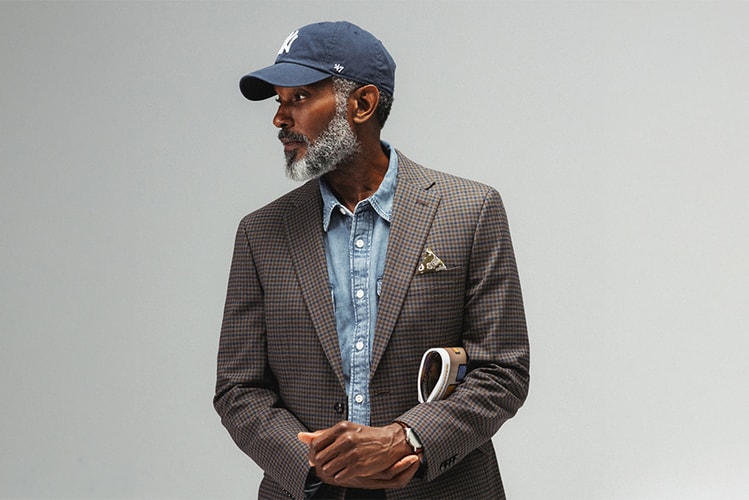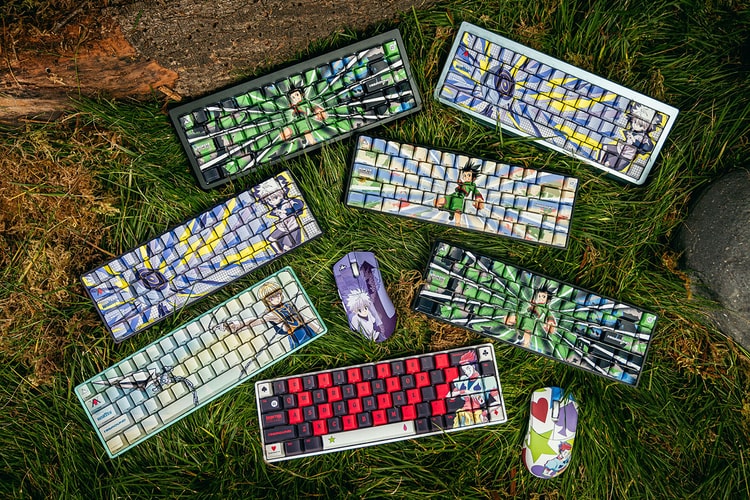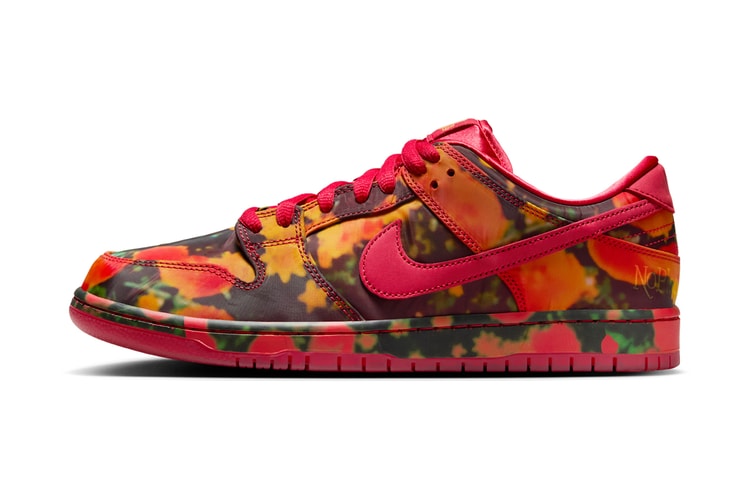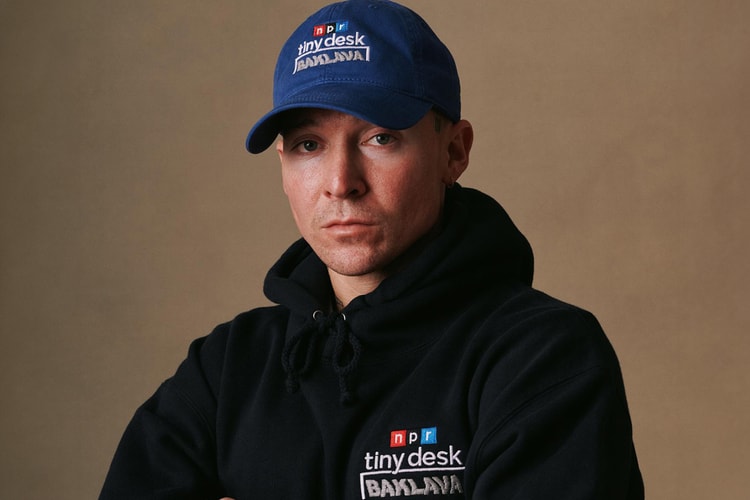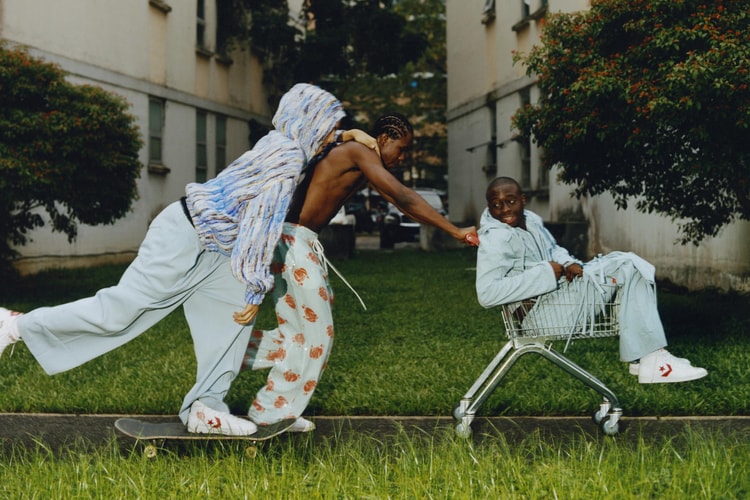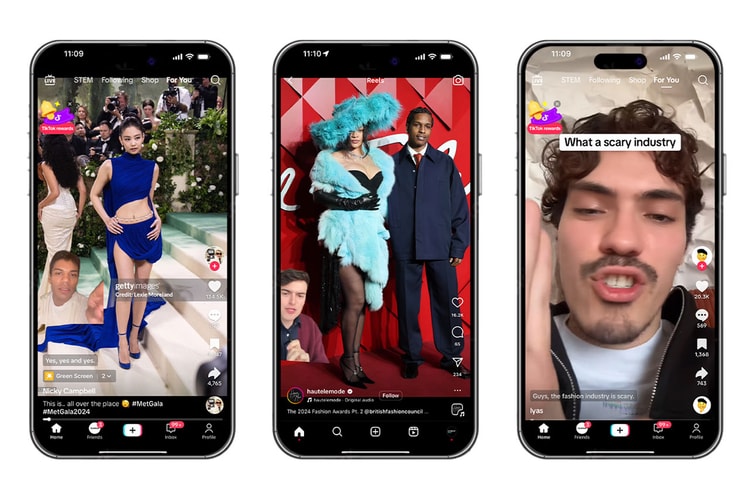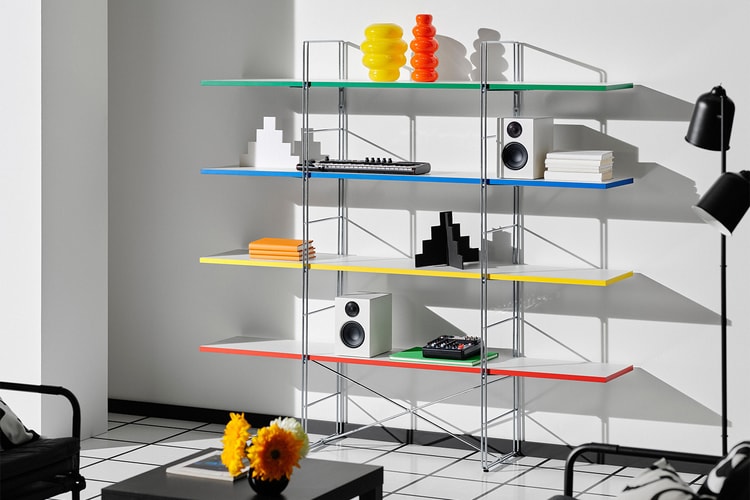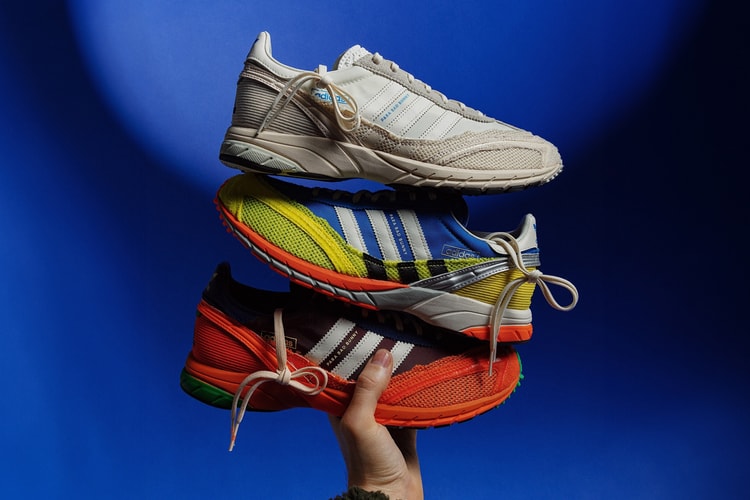Microsoft's AI CEO On How the Technology Will Impact Culture
Hypebeast spoke to Mustafa Suleyman about how artificial intelligence is changing the world and the brand’s chatbot ‘Copilot’.
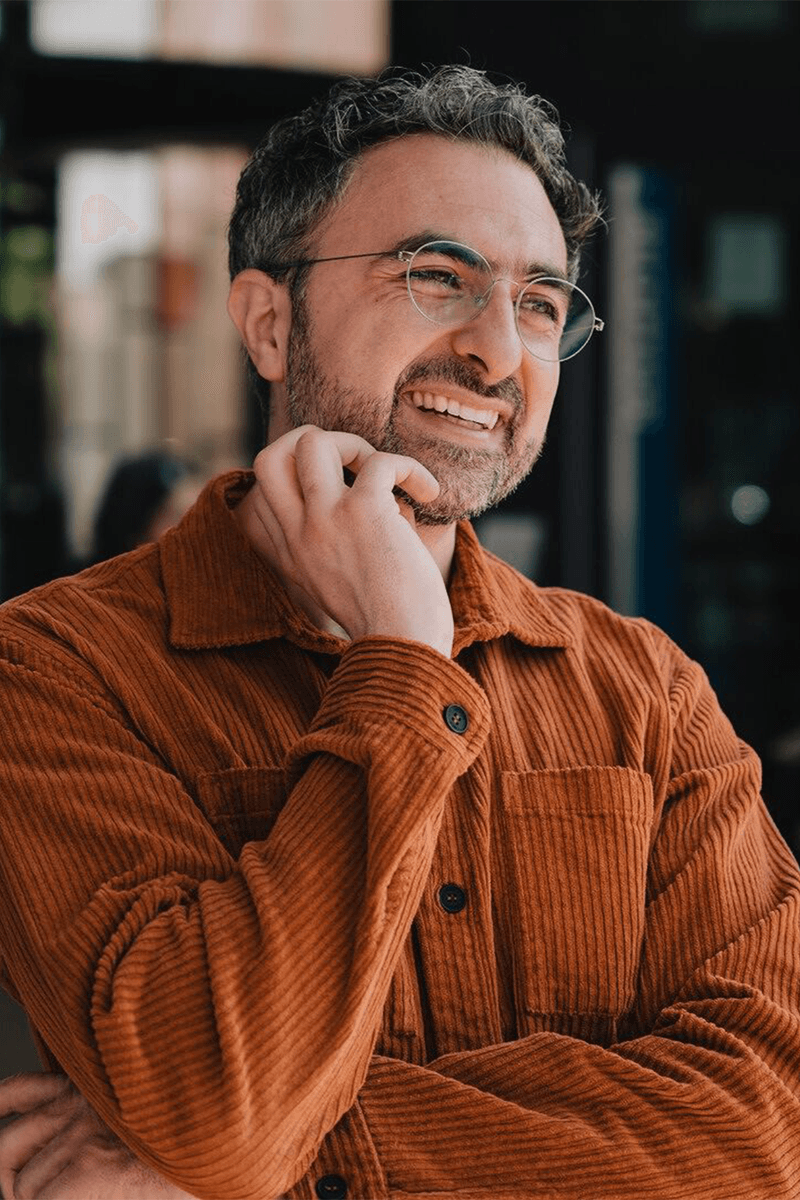
Microsoft's AI CEO On How the Technology Will Impact Culture
Hypebeast spoke to Mustafa Suleyman about how artificial intelligence is changing the world and the brand’s chatbot ‘Copilot’.
It feels like you can’t escape AI these days – in one form or another, the technology seems to have permeated most aspects of our lives. If nothing else, it has become the choice du jour of marketing tools for many brands.
In the past decade movies like Her (2013) and Ex Machina (2014) have presented, perhaps, extreme visions of a world in which our existence is intertwined with that of non-sentient technologies made of zeroes and ones.
But, the truth is, it’s nothing new: AI – or, artificial intelligence – has existed for decades and people have (perhaps unknowingly) used it some capacity almost daily. That sentence your phone finished typing for you? AI. The new show your TV suggested you’d like? AI. All those ads you see on your social media feed that feel strangely relevant to your interests? That’s – technically speaking – AI, too.
The difference, now, is that technology has advanced to a point where it is allowing brands to super-charge their AI-based products, resulting in popular applications, such as ChatGPT, to be adopted en masse and used by billions of people worldwide, and causing the average person to redefine their expectations of what’s actually possible with AI. All of this has happened in a relatively short space of time, too, the cumulative effect of which is the current cultural fervor around the topic.
In October, Microsoft announced the latest version of Copilot, its generative artificial intelligence chatbot launched in 2023. And, earlier this year, the brand revealed the formation of a brand new division, Microsoft AI, which it announced it had hired the British AI-leader Mustafa Suleyman to run. Suleyman, an AI-industry-veteran, had previously co-founded both the artificial intelligence research laboratory DeepMind in 2010 (later selling it to Google in 2014) and the machine learning company, Inflection AI, more recently in 2022 – one that the WSJ valued at $4B USD last year.
At 40, Suleyman – the son of a Syrian immigrant taxi driver and NHS nurse – holds the enviable title of EVP and CEO, Microsoft AI. Born in London and raised as a Muslim (though no longer identifying as such), Suleyman doesn’t fit the mold of a typical big-tech leader, so his appointment as head of AI at Microsoft – the Washington-based company founded by Bill Gates in 1975, which has been at the forefront of computing for decades – is at once both industrially and culturally significant. (Curiously, he shares a heritage similar to that of another half-Syrian tech leader).
Aided by technology, the world is changing faster than ever. “We’re living through a technological paradigm shift,” Suleyman says, and artificial intelligence is as much a tool as it is an an agent of change.
Hypebeast caught up with the new CEO of AI to talk about the technology and its impact on people and culture.
What were the first challenges you faced since starting your new role in March?
The first thing that we had to do was rebuild the app. The old version [of Copilot], frankly, was a bit slow, it was a bit ugly, it was kind of hard to read. And I believe that this [new version] is going to be something that a lot of younger will people love, because it is snappy, clean, modern, and it’s beautiful. And that, I think, is what people expect. If you’ve been a digital native, it’s bonkers to you that something would be buggy or brittle or slow. So that’s table stakes: Rebuild it from scratch, new aesthetic, much more humanist. We took out all those bright neons, the electric blues, the kind of old-school greys, and layered it with much softer human colors. Looking forward, we really want to turn this into a proper companion. It’s going to be a friend, it’ll get to know you over time. It’ll have perfect memory. It’ll be very reliable. At the moment there are still some hallucinations, but it’s going to feel much less so – almost to the point where it’s more accurate than a Google search result or a Bing search result, so that you can actually rely on it every day for giving you factual information. It has got access to real time information, so it gives you citations and references – so you can go and check the underlying source if you want to – and it knows what’s happened 15 minutes ago in on the web, like, if there’s a big news event, or if there’s a meme trending, or, you know something’s happened during the day, it’ll be able to talk to you about that.
How are you going about attracting a younger audience?
The first thing is quality. The product just has to be really high quality and smooth. The second thing is the aesthetic – it looks and feels just a little bit different to your traditional app, at least from a Microsoft perspective. It’s much softer and more calming, and the tone of the AI itself has got personality. It will make a little joke, it will be self deprecating, it will be… I wouldn’t say slang, but it’s not writing in formal adult English. It’s not just regurgitating the encyclopedia. It’s talking to you as I’m talking to you now, as a regular person on the street would. That tone is fresh and it’s different – and it’s how everyday people like to speak. So what I’m really crafting is the personality of the AI as well as the UI. The aesthetic has to look a certain way, but interacting with it has to feel a certain way as well. That’s the balance.
It’s going to start living life alongside you. That’s what I’m building. A companion that will really see what you see and hear what you hear.
AI has been a buzzword for a couple of years, but how much of the work we see today was actually done over many years previously?
I co-founded DeepMind in 2010 and I started working on AGI, Artificial General Intelligence, almost 15 years ago. Then in 2014 we were acquired by Google and I led Applied AI at DeepMind, then AI at Google on the product side for many years. I’ve been working on this for a very long time – and I’ve seen these models get bigger, better and stronger. And, with each year, we’ve managed to put out a new model that is more accurate with less hallucinations, that has more capabilities. There’s been a very steady progression of improvement. And the next wave that is coming is that the AI models will be able to use websites on the front end. It’s going to be able to click around buttons, you know, buy things, book things. It’ll be able to enter things into your calendar. It’ll be able to browse your email, pick out the ones that are useful to you, send you a distilled summary of those emails, let you know that you gotta take an action off the back of it, like cancel your subscription, or remind you that your flight is at this time or that time and tell you that the traffic’s this or that and like. It’s going to start living life alongside you. That’s what I’m building. It’s a companion that will really see what you see and hear what you hear. A few weeks ago, we launched a feature called Copilot Vision, and Vision basically sees everything that you do in the browser. It basically looks at the images, the video, all the content that you’re looking at in real time and it understands it. So, you could say, “Do you think that rug will look good in my apartment?” Or ask it, “How will that poster look like?” You can actually talk about what you’re seeing [and] it is going to feel like you are browsing with a friend or a partner. Like you’re on one laptop, they’re on another, and you’re both looking for something together, talking about the same thing. That’s what a companion is going to feel like.
Do you think the technology is taking anything away from our “humanity”?
I think technology has made us more connected to each other than ever before. What happens is culture gets changed by technology, then we collectively decide whether it feels good or we don’t like it and we evolve. Or we resist and change it. So, there’s this dynamic interaction where we shape technologies that shape our culture, which we then shape. That’s going to happen again with the creation of AI companions. We’re all going to have a conversational AI assistant that we live with, that supports us, that we learn from, and that’s… that is a profound shift. So, to come back to your question about what it means for culture? What does it mean for people? It’s going to be a profound transformation. I think it’s going to be incredible, like everyone is going to have a super intelligent teacher, doctor, lawyer, therapist, friend, entertainer, scheduler in their pocket. All those tasks are going to become available to everybody, and that just leaves us with human ingenuity to take advantage of all of those things and create new things, you know?
My dad drove a taxi and worked in a sandwich shop for 30 years. My mom was a nurse. There’s just no way, if I’d grown up in the 70s, that I would have had a chance of doing this kind of thing.
AI is a relatively young industry and it is still being shaped in many ways. What are you doing to ensure there’s a wide representation of people working on the creation of AI within your organization?
As far back as 2015 I started hiring machine learning researchers and engineers – specifically from women’s recruiting conferences like Women in Machine Learning or the Grace Hopper conference. We were the first to to attend that – even before Google. We actually got Google to go to it. It has always been central to my belief and everything that I’ve done, even before getting into technology, [to be] about community organizing and activism. I cared a lot about representation, and still do, so I’ve made it a priority personally to make sure that my teams are as diverse as they can be, that our hiring pipelines are diverse, and that we have broad representation because it makes us smarter and makes us better at our jobs and it makes our products richer. My own presence right here [as CEO of Microsoft AI], doing what I’m doing, is a sign of the times changing a little bit, given my background and how I grew up. I think things are changing – slowly, but surely. I think the good news is that these [AI] tools are going to be widely available at basically zero marginal cost – they’re basically going to be free. Everyone is going to be able to access them. There’s not really going to be an equality of access issue, [but] there’s still going to be an education issue – like knowing how to access and how to take advantage is still a structural privilege that comes from having a calm and supportive family, and having a good education. More than any decade in human history, the gap is narrower. I never would have been able to do what I’m doing today in 1970 – that’s a crazy thought. My dad drove a taxi and worked in a sandwich shop for 30 years. My mom was a nurse. There’s just no way, if I’d grown up in the 70s, that I would have had a chance of doing this kind of thing.
Is there something that has surprised you in your career journey with AI?
Not to be like difficult about the question, but surprise is a function of your expectation. I haven’t really been surprised. I think it’s been quite predictable partly because I’ve been working on it 15 years, but there’s also a steady march where if you add more compute and more data, tune the algorithms, and focus on what you’re trying to build, you do get there. I think the thing that has definitely surprised me is how quickly people have tried out chat bots and how quickly they’ve become second nature to people. I mean, [it is] the fastest spreading technology in history! We went from zero understanding or access or use, to a billion users in 18 months. No other technology, no matter how useful – not TV or the car or the spread of electricity, even the rise of mobile phones – has spread that quickly in such a short space of time. And people are hungry for more! The crazy thing is, people are like, “it’s not good enough” or “I want this fixed, I want to have real time information” or “why can’t it do generation of video?” And you’re just like, “Dude!” [laughs]. It is already insane. And people are just demanding more and more and more, and that’s kind of amazing.
The “Godfather of AI”, Geoffrey Hinton, thinks AI will “take over” within 20 years. Is this something you ever think about?
To honest with you, it’s something that I’ve thought about pretty much constantly since 2010. I care very deeply about [AI], so my job is to take that question seriously – even though it sounds wacky. I don’t think we’re on that path in the next 10 years, but I can’t rule out that happening before 2100, you know. I think the problem is most people just don’t think about the far future. Geoffrey Hinton gave that interview after winning the Nobel Prize for his work in AI, and he’s someone who spends his whole life thinking about the long term future. And I’m also one of those people who really thinks decades ahead, so it’s second nature to think about those things.
Are we evolving?
It’s a good question… it is a good question. I mean, we’ve been evolving for tens of thousands of years, hundreds of thousands of years – or millions of years, if you consider where we really came from. I don’t know. The difference is that we have the intelligence and the self control to steer evolution this time. Evolution has never been steered before.
















